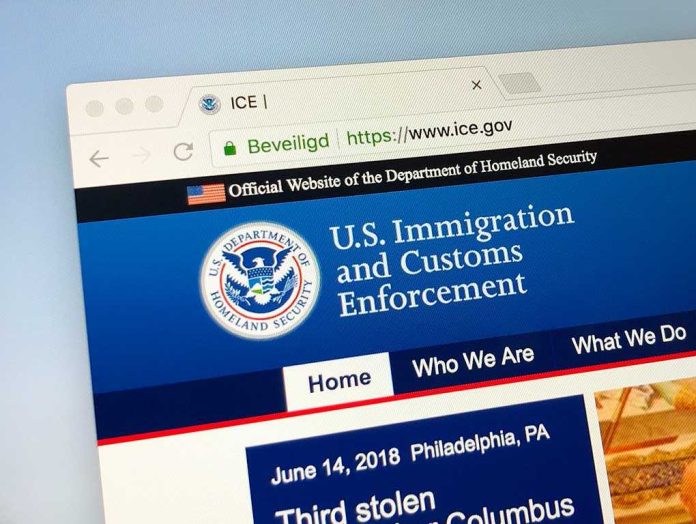
One ordinary suburb, a bomb threat, and a city leadership forced into hiding—how did Broadview, Illinois become the latest flashpoint in America’s immigration debate?
Story Overview
- A civil emergency order grips Broadview, Illinois after violent riots and bomb threats at a local ICE facility
- Death threats against city leadership underscore the rising tensions over immigration enforcement
- The quiet suburb’s sudden chaos signals broader national divides and a precarious future for community order
- This event exposes the fragility of local governance under pressure from political and social upheaval
Broadview’s Suburban Calm Shattered by Anti-ICE Uprising
Broadview, a village west of Chicago better known for its tree-lined streets and quiet routines than for violent unrest, was thrust into national headlines when a wave of anti-ICE protests erupted outside its U.S. Immigration and Customs Enforcement processing center. What began as a demonstration over federal immigration policy escalated rapidly, with agitators clashing against police, property vandalized, and threats of violence echoing through the community.
As dusk fell, the situation worsened. Reports surfaced of bomb threats aimed at the ICE facility and, chillingly, of death threats targeting elected officials. The air crackled with a tension unfamiliar to most Broadview residents, who watched with disbelief as their suburban enclave transformed into a battleground. Emergency sirens wailed late into the night, and rumors of further threats ricocheted across social media, intensifying public anxiety.
Civil Emergency Order: When Local Authority Is Tested
By morning, the village government invoked a civil emergency order—a drastic but increasingly common measure in America’s polarized landscape. This decision, once almost unthinkable in such a placid suburb, brought curfews, restricted movement, and a visible police presence. Local leaders, some receiving credible death threats, were forced to operate behind closed doors or under police protection, underscoring the real danger that can spill from political rhetoric into personal peril.
Residents and business owners faced difficult choices: shutter early, board up windows, or risk exposure to the unrest. The suddenness of Broadview’s transformation left many unmoored, questioning both the effectiveness of local governance and the resilience of community bonds when confronted with national controversies at their front door.
ICE Facility: Lightning Rod in a National Storm
The ICE processing center in Broadview became the flashpoint for a larger, unresolved American conflict: the collision of federal immigration enforcement with grassroots activism and local governance. Advocates for immigrant rights have long targeted such facilities as symbols of policies they see as unjust. Yet, the leap from protest to riot, and then to explicit threats of mass violence, signals a volatility that neither side can easily control.
Law enforcement struggled to maintain order, caught between upholding the law and avoiding escalation. Community leaders pleaded for calm but found their authority undermined by mounting fear and distrust. The chaos exposed vulnerabilities not just in public safety, but in the mechanisms of democracy itself: when threats silence public officials, who governs, and how?
Aftershocks and Open Questions for Broadview’s Future
As calm tentatively returned, Broadview’s residents faced the aftermath: lingering fear, damaged property, and a gnawing question about the future of civil discourse. The village’s ordeal was more than a fleeting flash of violence—it was a microcosm of the national struggle to balance law enforcement, civil liberties, and the responsibilities of leadership under fire.
Will Broadview recover its sense of safety and order, or is this just the first tremor of deeper upheaval? The answers may depend not only on policies and police, but on whether communities can withstand the corrosive effects of fear and division when national crises land on their own doorsteps.
Sources:
Civil emergency declared in Broadview as protests against ICE continue

